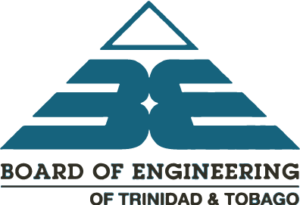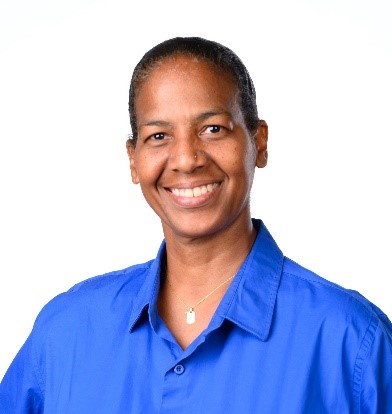Margarita Leonard, BSc, PMP, FAPETT, G.IStructE, R.Eng.
A Chat with Engineer Margarita Leonard, recipient of APETT’s Award of Sterling Service to the Association
Engineer Margarita Leonard is one of the recent recipients of the RVS Aleong Award for Sterling Service to APETT. This is an Award that is conferred on a Member in recognition of outstanding service to the Association. The Awardee would have had membership in APETT for at least 20 years and served on the Executive council for at least one year, was actively involved in the Association’s Works and has been a leader in completing specific projects or activities of the Association and in promoting its objectives. In that regard, Engineer Leonard’s unstinting contribution in the service of APETT is the hallmark of professional commitment. Hers is indeed a sterling example of what it means to leave behind a world that is better than that which you have met, with the local engineering profession being the beneficiary.
Q1. Congratulations on receiving the Award of Sterling Service to the Association of Professional Engineers of Trinidad and Tobago (APETT)! How does it feel to be recognized for your dedication and contributions to the Association?
Thank you! I feel very humbled on achieving the RVS Aleong Award for Sterling Service to the Association of Professional Engineers of Trinidad and Tobago (APETT), especially as it is an award based on assessment by one’s peers. Ii is indeed an honour to receive an award, such as this, which is based on others viewing your contributions and accomplishments and commending you for those actions. It’s nice to know that you’re doing what you can in an organisation and there are others who are taking note of what you’re doing, even though seeking or receiving an award wasn’t my intention; it was simply to make a contribution to the professional association.
Q2. Can you share some examples of the specific ways in which you’ve served the Association of Professional Engineers, and what motivated you to become involved in this capacity?
Based on the nudging of one of my colleagues, I offered to serve in 2009 as Interim Chair for the Civil Division – this was for a few months as it was near the end of the 2008/2009 APETT term. At the end of the term, I was then asked of my interest in being nominated for the position of Honorary Secretary for which I obliged and was successful in the nomination for the post. I served, I believe, diligently as Hon. Secretary, as I was re-elected to the position for the next few years. At the AGM of 2012, I was elected as the President-Elect for the next term of office and in 2013 I became the 2nd female President of APETT.
As Honorary Secretary, I was involved in many of the undertakings of the Association. I was heavily involved in supporting the Presidents as best I could, reviewing APETT membership applications, reintroducing the APETT Diary, preparing the AGM Reports, attending meetings on the Engineering Profession Act and chairing one or two of the AGMs. These, I believe, demonstrated my commitment to the Association and my desire to see the Association excel.
As APETT President, we restarted the APETT Technical Conference and this has continued to today. In addition, we worked closely with BOETT on the draft policy to amend the Engineering Profession Act. We were successful in Oct 2013 in having a meeting with Minister Bhoe Tewarie, Ministry of Planning and Sustainable Development on the Registered Professionals provisions of the Planning and Facilitation of Development (PAFD) Bill.
Q3. What do you believe are the most significant achievements or milestones you’ve accomplished during your service to the association?
I am proud of being part of the APETT team who produced the APETT Diary in 2011 and which continued for a few years. I served as Honorary Secretary for four successive years which demonstrated to the incoming Presidents of both my ability and dedication to the post and the Association. My induction as President was done in an informal manner, not at a banquet, and I believe that has inspired the Civil/Engineering Limes which have become a great social occasion for members and aspiring members to meet and greet.
The reintroduction of the APETT Technical Conference at that time was also a great achievement for me which was gained with the help and dedication of the Executive Council during my term as President.
Q4. In what ways has your involvement with the Association impacted your professional development and career trajectory as an engineer?
Having to interact with Engineers in various walks of life and disciplines is indeed a part of professional development – both in engineering and managerial skills. Simple discussions or meetings have lent to my continued learning as I’ve become aware of the history of various projects and past developments – Petrotrin, the railway, UWI, etc. These exchanges also assisted me in developing ways to address various matters, building confidence in myself and pushing me to do more reading and research.
Q5. Collaboration and teamwork are often essential in association work. Can you discuss some instances where working with others within the Association led to positive outcomes or initiatives?
This is one of the great aspects of working with APETT. I had to work with various Executive Councils to achieve the goals – the diary, attracting new members, the annual APETT banquet and the conference. It’s a coming together of ideas, not necessarily total agreement, but collaboration to achieve the end goals.
As President-Elect, and the ex officio Chairman of APETT’s Honours and Awards Committee, I had the opportunity to work with the team of Past Presidents and Fellows who comprise this Committee and make recommendations of members for APETT Awards, including that of Career of Excellence, Outstanding Young Engineers and Sterling Service to APETT, as well as for other awards such as NIHERST and National Awards. Again, this was an avenue to gain knowledge of engineering projects and the respective accomplishments of engineers, both young and old, who have worked in the various engineering fields or pursue innovation engineering research and the contributions they make to the profession. The ability to exchange views on decisions to be made have been absolutely enlightening.
Q6. As someone who has demonstrated sterling service to APETT, what advice would you offer to other engineers who are considering becoming more involved in the Association?
Being involved in APETT had definitely expanded my view of engineering and the Association. When you’re part of the Association you become more aware of issues which are of both engineering and public interest – there’s the Engineering Profession Act, Continuing Professional Development and the Procurement Bill. All of these impact our lives as engineers and citizens and to be a part of that change, however long it takes, is definitely a positive. Instead of complaining or being disappointed by what is happening, the Association is an avenue to become part of the voice for change and an advocate for pursuing actual change that can be a benefit to us as engineers and citizens.
Q7. What do you see as the most pressing challenges or opportunities facing the engineering profession today, or for that matter, the Association of Professional Engineers, and how can these be addressed?
I believe the inexplicable delay in the legislative finalising of the Engineering Profession Act and the full operationalisation of the Procurement Bill are two of the greatest challenges facing engineers today. Accountability and consequences remain at bay if these two instruments of governance are not addressed. At the end of the day, the everyday citizen will bear the brunt of non-implementation of revisions to the Act and operational deficiencies in the Bill.
Associations such as APETT, BOETT, TTIA, JCC and others should be consistently more visible in their advocacy on public affairs issues under their purview. Experienced and registered professionals should be the source of expertise for voicing opinions on projects which affect the nation. We should be involved in training/teaching/learning from the major projects undertaken in T&T – both the successes and the failures. Engineers and construction professionals should be able to use the lessons learnt from national projects, such as The Curepe Interchange Project, The International Waterfront Complex etc., to impart knowledge among our population and assist the development of young engineers/professionals.
We must find a way to provide young engineers with an avenue through a formal process of internship and mentoring to gain the experience and training that is desired by the industry. How else can a graduate gain experience if not through mentoring and internship with experienced professionals?
Q8. Looking ahead, what do you hope to achieve or contribute to the association in the coming years, and how do you plan to continue your service?
At present I am a member of the APETT Honours and Awards Committee and Ethics Committee and I am also an APETT nominee serving on the Board of Engineering. A new APETT President has been recently installed and I await her goals for her term of office and have expressed to her my interest in serving and supporting her during her tenure.
Q9. Lastly, what does receiving the Award of Sterling Service mean to you personally, and how do you plan to continue advocating for the engineering profession within and beyond the association?
I always feel extremely humbled by acknowledgements such as these. I always see myself doing what I can without any expectation of award and batting out the innings to assist the team.
I continue to serve on engineering organisations and, at present, I am a member of the Board of BOETT, where as Chairman of the Board’s Assessment Committee I have oversight responsibility for the Assessment of the engineering competency and capability of applicants for registration with the Board. I am also the BOETT representative on the Council for Trinidad and Tobago Group of Professional Associations Ltd. (TTGPA) where I also serve as the Chair of the Infrastructure Maintenance Committee which is charged with addressing building renovation and expansion and safety matters on the TTGPA site. In my discussions with clients and younger persons, I continuously explain the important role that engineers play in the successful outcome of any undertaking in the built environment and provide examples of negative outcomes where the services of an engineer was necessary but not utilised.
I also continue to advocate involvement in APETT resulting in some of my colleagues becoming involved in the Civil Division and engaging in APETT events. I often stress the importance of building relationships within the association and encourage individuals to network with other members, engage in discussions, and collaborate on projects. These connections can lead to valuable professional opportunities and friendships.
I also believe that it is necessary to engage both the main stream and social media platforms to promote the contribution of the engineering profession to society. Presentations on engineering achievements, including the achievements of engineers who have excelled in their field of practice should be shared with the engineering community and the society at large; an example of this is the APETT Engineering Legacy Project.


